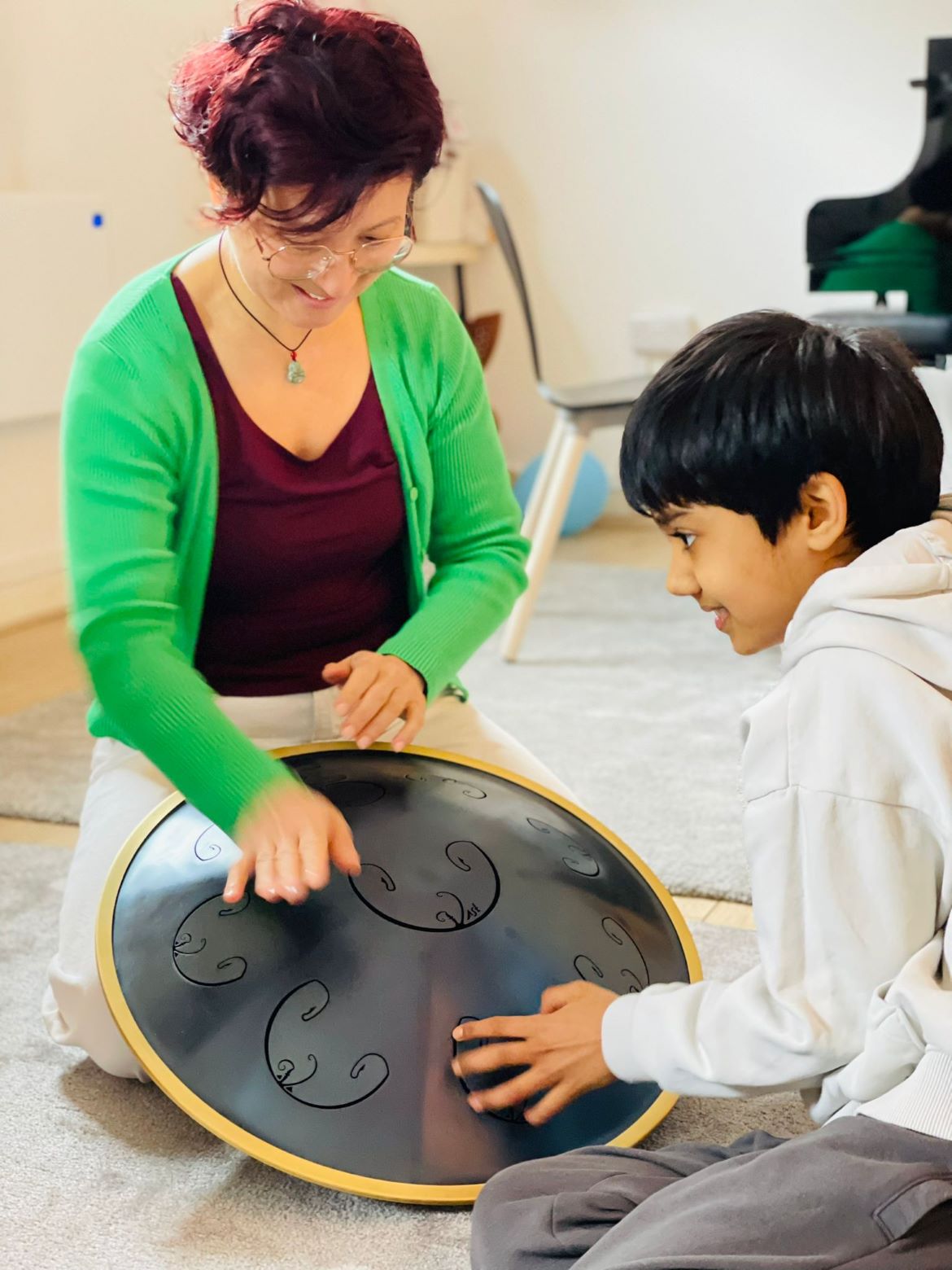Our Terms & Conditions | Our Privacy Policy
Music Therapy & Wellbeing Services for All Ages
At UMAI they see music as not only therapeutic but also instrumental in improving mental health, boosting confidence, promoting self-expression, improving focus, facilitating self-regulation, and enhancing the development of speech and language. Using music as a creative tool, they assist individuals of all ages with a wide variety of needs, supporting the development of play, motor skills, social skills, communication, and interaction. In addition to their creative music therapy approach, they offer Neurologic Music Therapy (NMT) to support clients with neurological conditions. Here, founder Kamila Almabetova talks to The Natural Parent Magazine about the inspiration behind her business, the challenges she has overcome, and her hopes and dreams for the future.
The passion: What inspired you to set up your business?
I have been practising as an HCPC-registered music therapist since 2011, securing my first job shortly after earning my Master’s Degree. Over the years, my passion for this profession has only deepened. However, I always felt the desire to expand my offerings, using music and sound as therapeutic tools to reach more people. I envisioned creating a practice where anyone could find something that resonates with them-whether for maintaining wellbeing, bonding with a baby, or assisting individuals with developmental needs, trauma, neurologic conditions, and more.
I also wanted to be flexible in my approach, merging different therapeutic models and techniques while using music and sound to foster unity and connection among people.
By 2021, I had accumulated a wide array of musical instruments but lacked a dedicated space to store and use them. Taking a leap of faith, I opened a studio in Central Wimbledon, offering music therapy and wellbeing services. Every service is shaped and adapted to meet the needs of the community and our service users.

The launch: How did you start out in the beginning?
My first gig as a professional music therapist was with a care home in South-West London. I cold-called them, asking if they needed a music therapist. They told me they liked my pitch over the phone and were curious to see music therapy in action. My first official client was a 98-year-old woman. The moment I began to sing, her face lit up, and she reached forward to play one of the instruments I had brought.
The staff had previously told me that she found it difficult to engage in any interaction or activity due to her frailty and advanced dementia. But at that moment, music broke through-showing that, regardless of age or condition, we all have the capacity to respond to its power. This experience reaffirmed my belief that music therapy can reach people in ways words alone cannot, and continues inspiring me every single day.
The Innovation: What was the biggest breakthrough for you with your business?
At some point, it felt natural to begin merging techniques, approaches, and various music and sound traditions to adapt them to my clients’ needs. For a while, I had been separating the “scientific” from the “spiritual,” the empirical from the intuitive. Then, the pieces of the puzzle started to come together, and I realised they were all part of the same picture. Scientific understanding and spirituality are deeply connected, just as intuition and empirical knowledge complement each other.
In many ways, the work we do as music therapists is spiritual. We bring all parts of ourselves into the process for the benefit of others. No technique or method can be effective unless it is carried out with your true self, or genuine love and care. Carl Rogers spoke about the importance of unconditional positive regard as a fundamental principle of therapeutic intervention. To me, that is simply love at the core of all healing work.


Yin and Yang: How do you balance work and family?
Being a working mom has never been easy. I started my Nordoff-Robbins Master’s degree when my baby was only 14 months old. It was a full-time course originally designed to run five full days, 9 to 5, with a highly selective audition process for prospective students.
Becoming a therapist is a challenging journey. Doing so while being a new mom, far from extended family, homeland, and culture (I am originally from Central Asia), was both painful and a precious experience.
For me, being a music therapist and sound practitioner isn’t just work-it has become a part of my identity. I’m connected to sound from morning until night, whether playing music with others, practising on my own, or using sound in my spiritual practice. It intertwines with everything I do.
Fortunately, I’ve built a place for myself where I can negotiate my own schedule, which gives me the flexibility to look after my children. Of course, it’s far from perfect. I’ve never felt like I’ve achieved a perfect balance. There are always compromises to be made. But as moms, we do more than we ever thought possible. And if we sometimes feel there’s no balance, that’s okay-we do what we can, and we do it well.
See next page for more…
Images are for reference only.Images and contents gathered automatic from google or 3rd party sources.All rights on the images and contents are with their legal original owners.



Comments are closed.